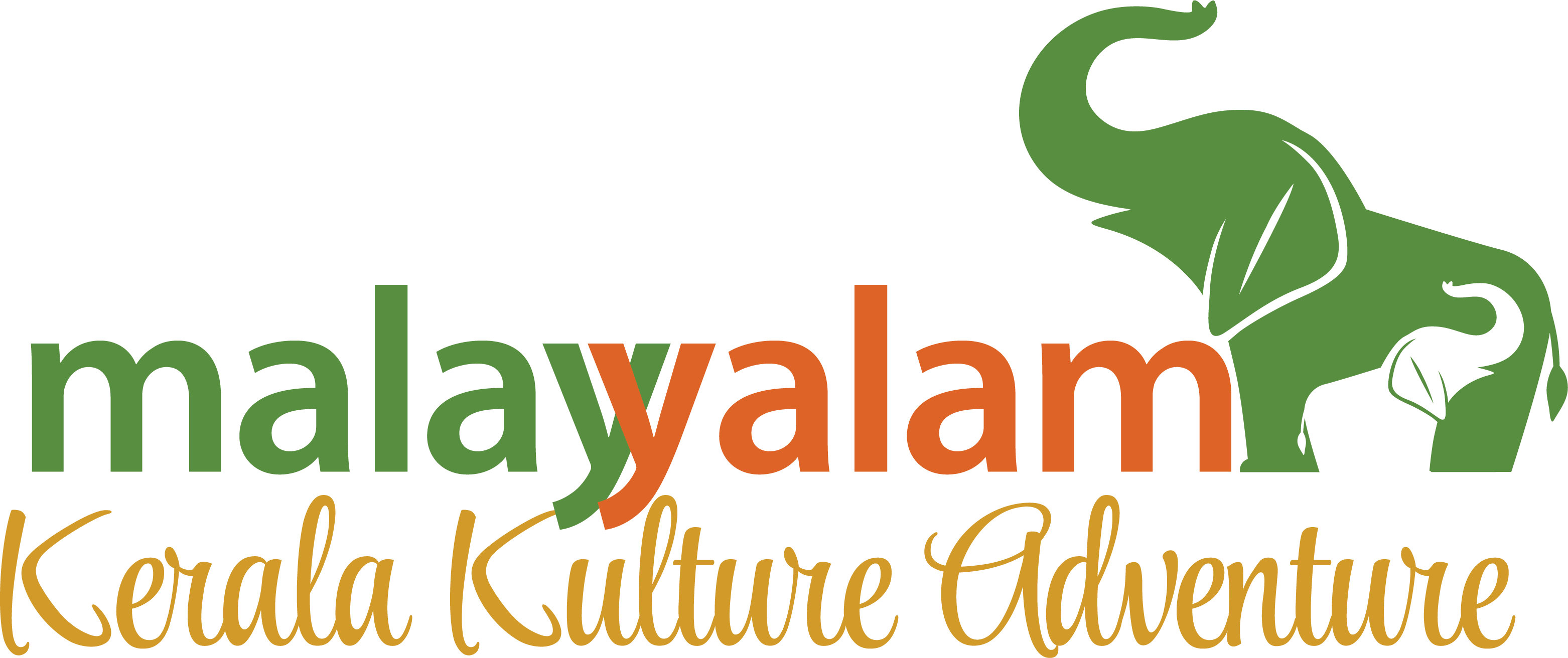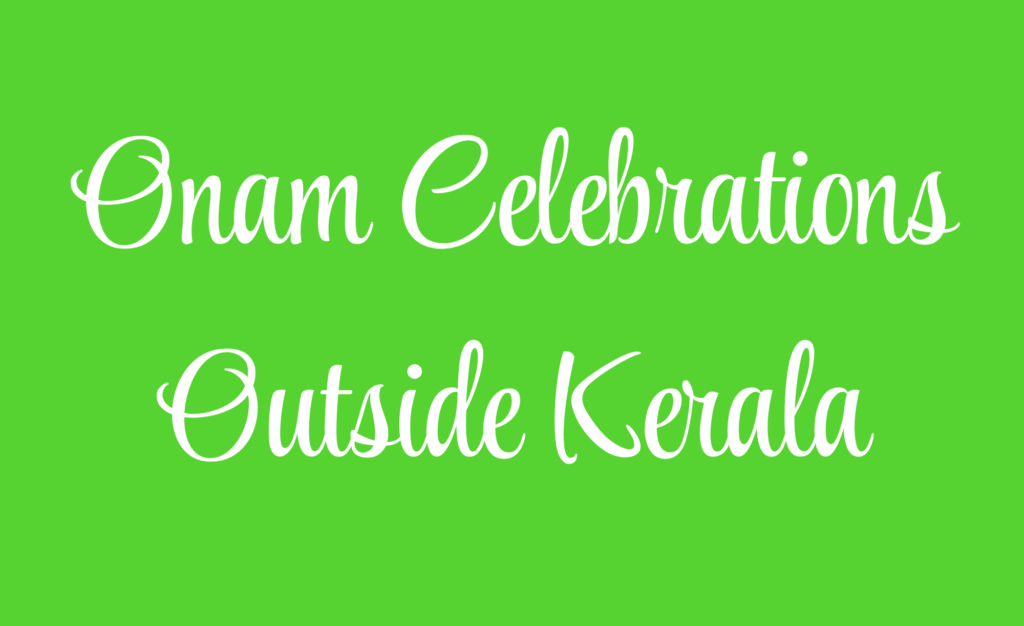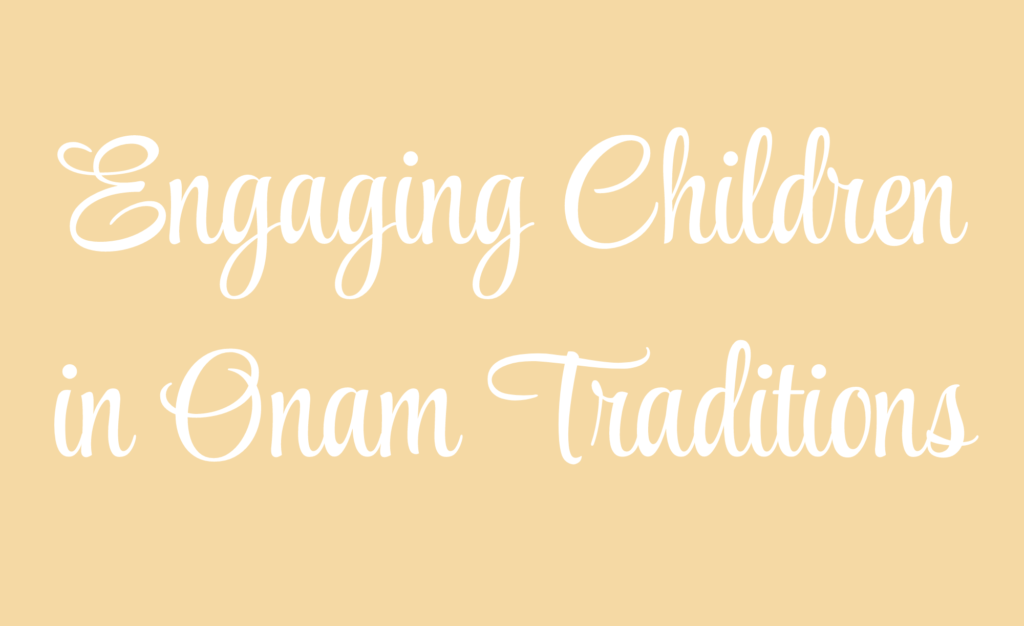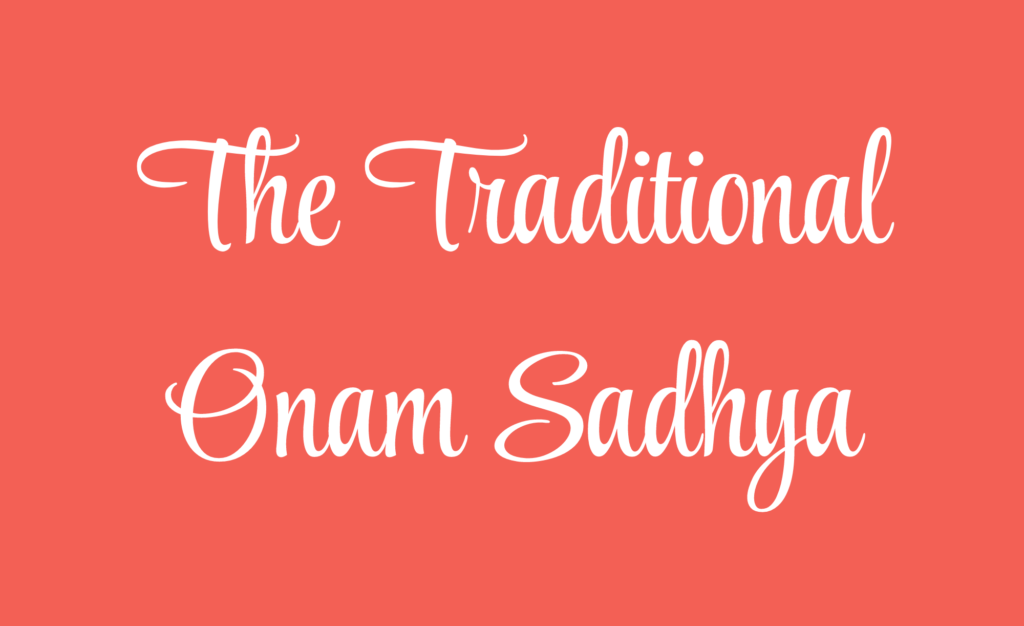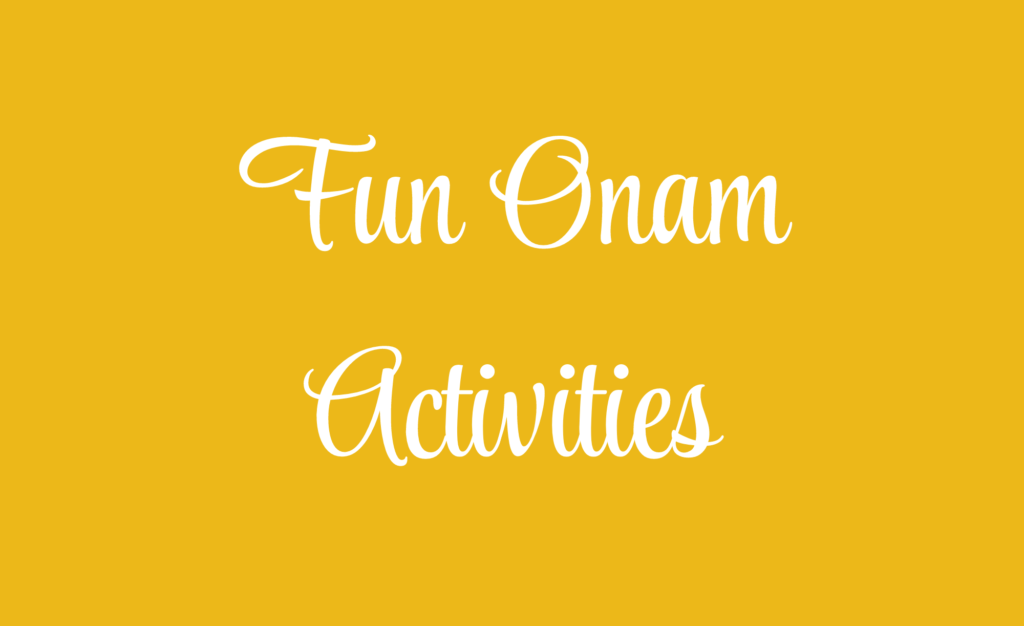The Essence of Onam
Onam is a celebration deeply embedded in the cultural fabric of Kerala, transcending religious boundaries and resonating with people from all walks of life. It is a festival that brings together families, communities, and even entire towns in joyous celebration, symbolizing unity, harmony, and the shared heritage of the Malayali people. For those living outside Kerala, Onam serves as a vital connection to their roots, offering a sense of belonging and a way to pass on cultural values to the younger generation.
Onam’s Cultural Significance
Onam is often described as a festival of togetherness, marking the arrival of King Mahabali, a beloved ruler who, according to legend, was known for his wisdom, generosity, and commitment to his people. While the story of Mahabali is rooted in Kerala’s ancient traditions, Onam is celebrated as a secular festival that welcomes everyone, regardless of their religious background.
The essence of Onam lies in the values it embodies—prosperity, equality, and gratitude. It is a time when families come together, communities unite, and people from all backgrounds join in the celebrations. For Malayalis around the world, Onam is not just a reminder of their cultural heritage but also a celebration of the values that define their identity.
Engaging the Younger Generation:
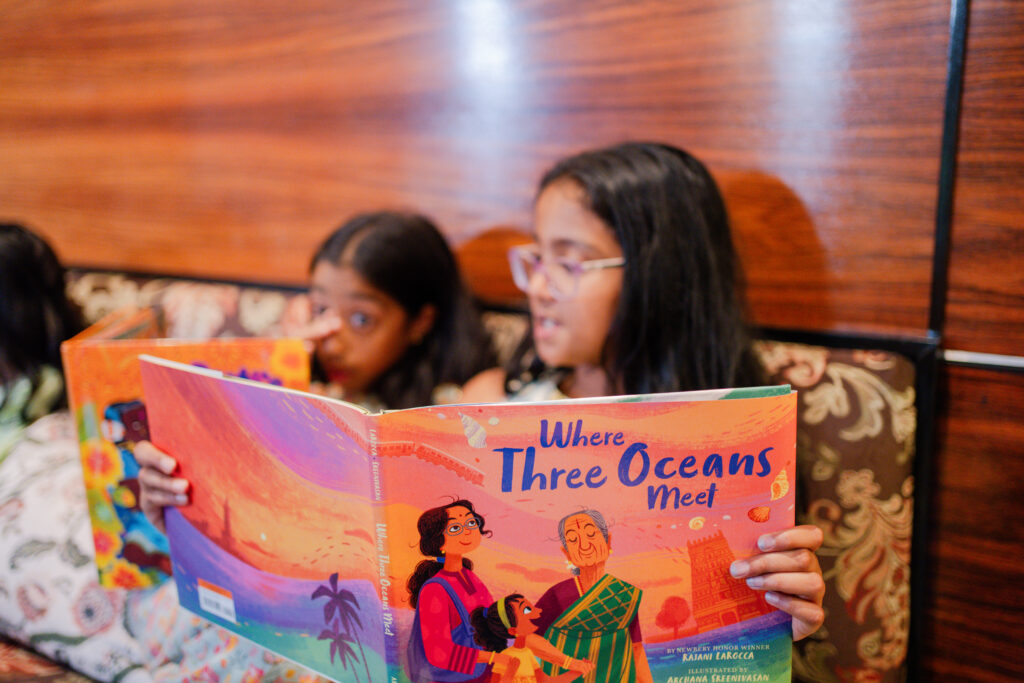
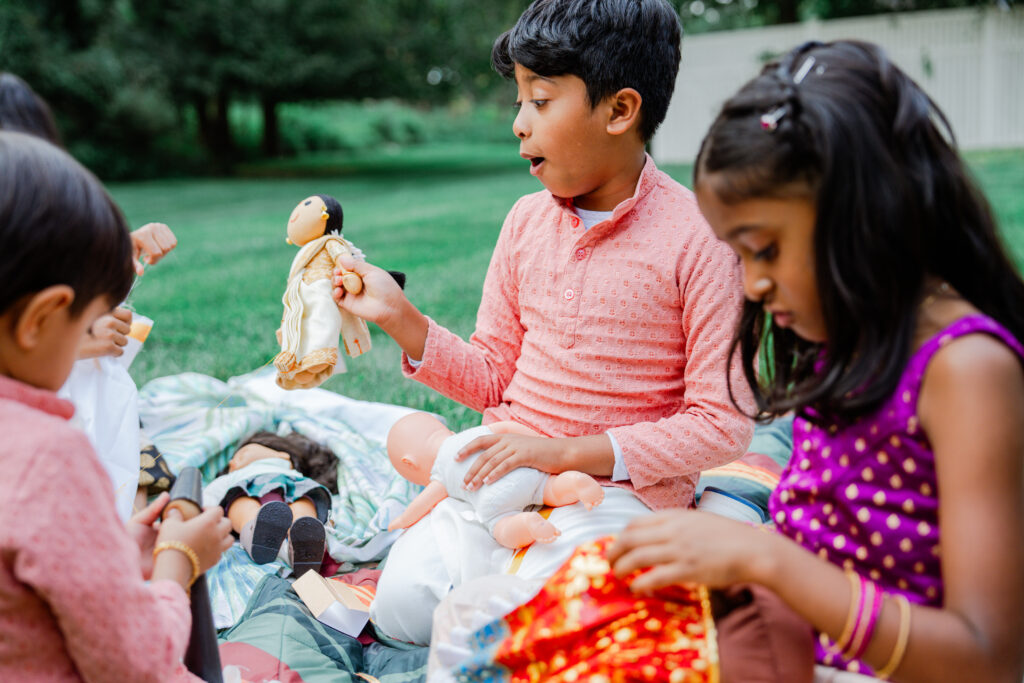
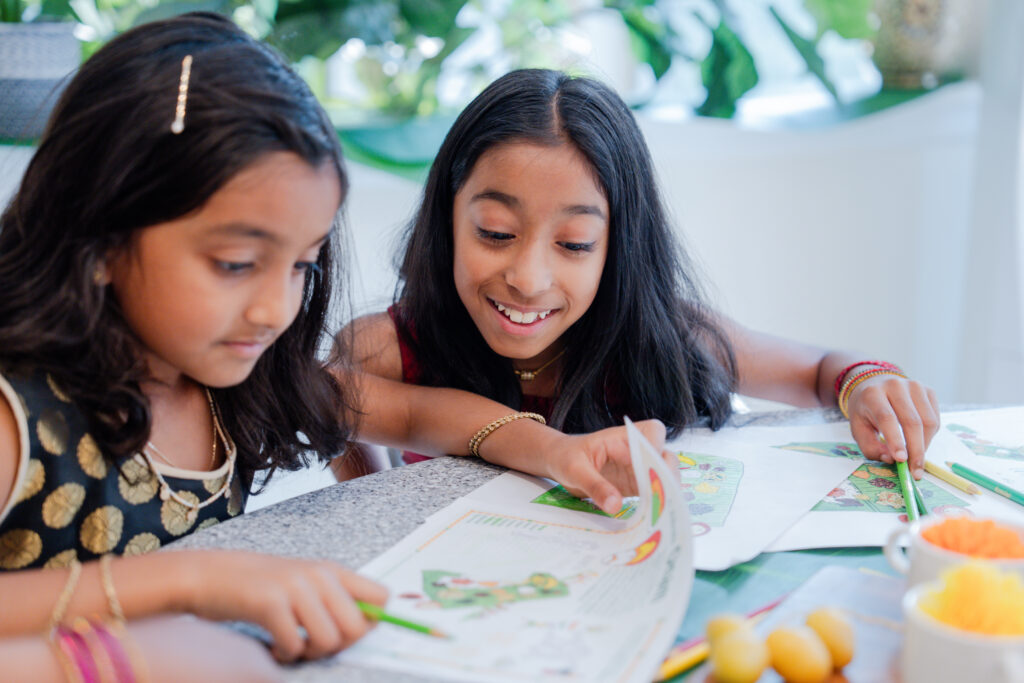
Storytelling Sessions:
Parents, grandparents, and other elders can engage children by sharing the story of King Mahabali in a way that emphasizes his qualities as a just and beloved leader, rather than focusing on religious aspects. They can use storytelling as an opportunity to discuss values like kindness, fairness, and the importance of community.
Interactive Storytelling:
To make the story more engaging for younger children, consider using puppets, drawings, or even digital storytelling tools to bring the tale of Mahabali to life. Encourage children to ask questions and share their thoughts on what they would do if they were in King Mahabali’s place.
Cultural Conversations:
Use the story of Onam as a starting point for conversations about other cultures and festivals. Compare Onam with harvest festivals or similar celebrations in the country where you live, helping children see the universal themes of gratitude and community.
Traditional Practices
Onam is celebrated over ten days, with each day featuring unique customs and traditions that contribute to the festival’s vibrant atmosphere. Here are some of the key practices that define Onam:
Pookalam
(Flower Rangoli)
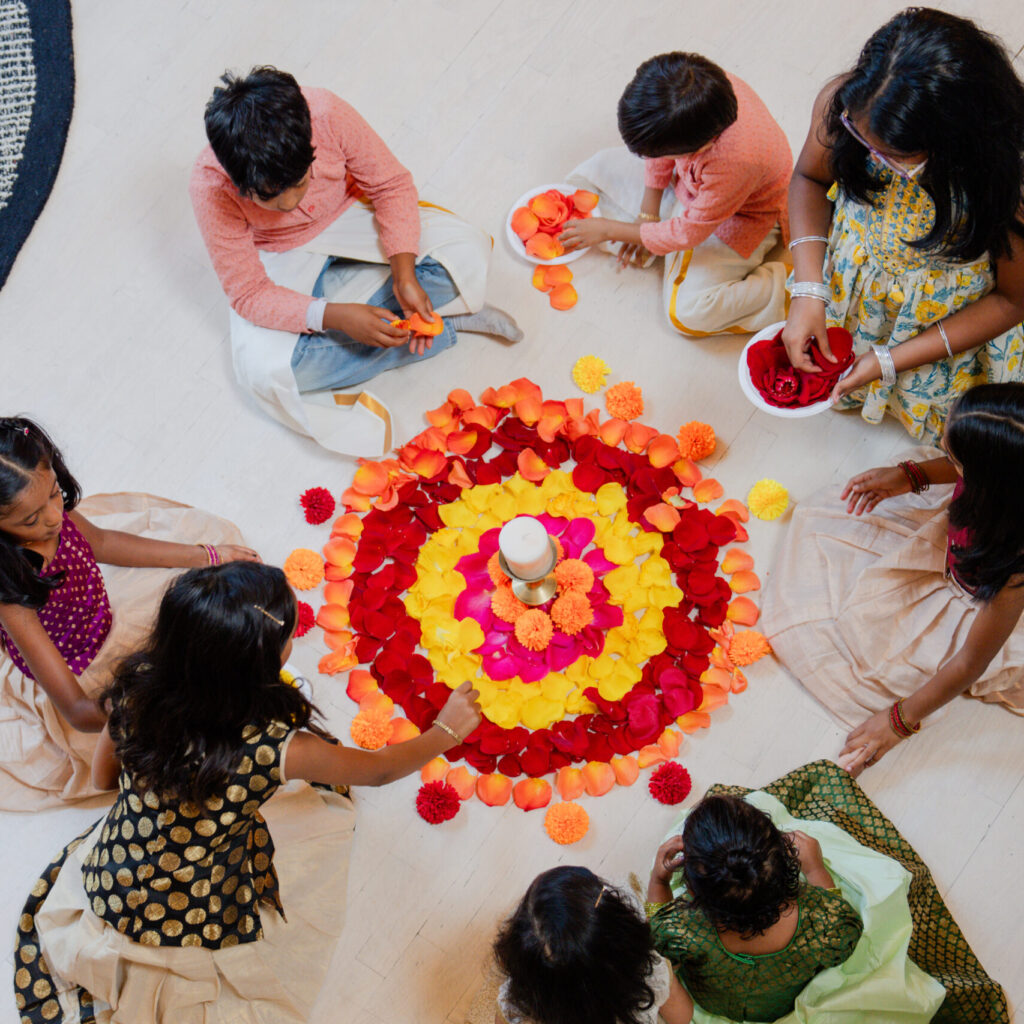
The creation of Pookalam, a colorful floral design, is one of the most beautiful and engaging aspects of Onam. Every day, fresh flowers are arranged in intricate patterns at the entrance of homes, symbolizing prosperity and welcoming guests.
Engaging Children: Invite children to participate in making the Pookalam by letting them choose flowers, design patterns, and arrange the flowers. This can be a fun and creative activity that also teaches them about the significance of welcoming others and beautifying the home.
Onam Sadhya
(Feast)
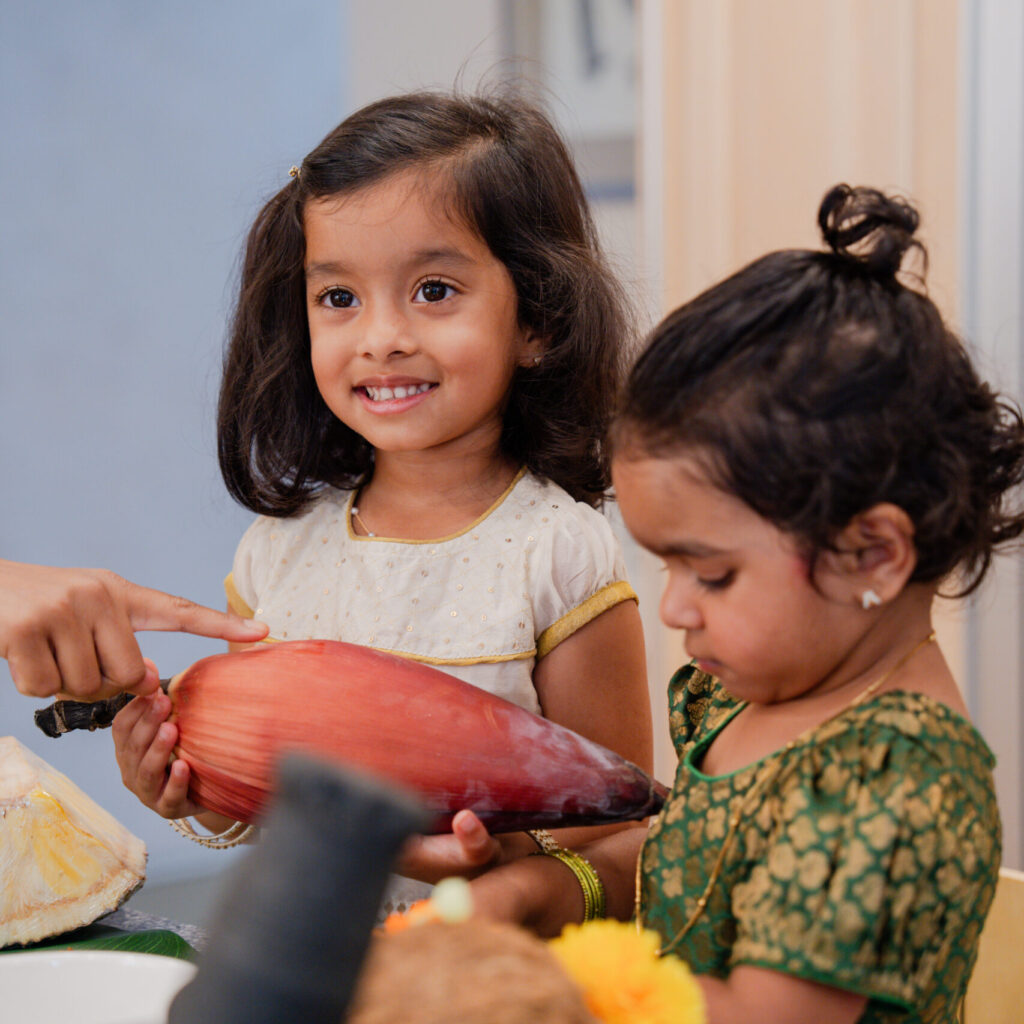
The Onam Sadhya is a grand vegetarian feast served on a banana leaf, consisting of a wide variety of dishes that showcase Kerala’s culinary diversity. The Sadhya is a communal meal that brings together families and friends to share food, laughter, and memories.
Engaging Children: Involve children in the preparation of the Sadhya by assigning them simple tasks like washing vegetables, arranging the banana leaves, or helping with plating. You can also make it interactive by explaining the significance of each dish and encouraging children to share what they liked most about the meal.
Family Stories: During the Sadhya, encourage elders to share stories about how they celebrated Onam in their childhood, what the Sadhya meant to them, and any funny or memorable moments from past celebrations. This not only entertains but also creates a deeper connection to the tradition.
Vallam Kali
(Boat Races)
Vallam Kali, or the traditional boat races, are a thrilling spectacle that takes place during Onam. Teams of rowers in long snake boats race along Kerala’s rivers, cheered on by enthusiastic crowds. These races symbolize unity and teamwork, as the rowers work in perfect harmony to achieve victory.
Engaging Children: While actual boat races might not be possible outside Kerala, you can recreate the excitement by organizing small-scale activities like paper boat races in a nearby pond or pool. Children can also watch videos of Vallam Kali and discuss the importance of teamwork and cooperation.
Pulikali
(Tiger Dance)
Pulikali is a colorful and lively dance performed by men painted as tigers, who roam the streets to the beat of traditional drums. This dance is both a celebration of the wild spirit of the festival and a reminder of the playful, joyous nature of Onam.
Engaging Children: Organize a mini Pulikali dance at home or within the community where children can dress up in simple tiger costumes or face paint. Encourage them to create their own dances and perform for the family. This can be a fun way to explore creativity and celebrate the playful aspects of Onam.
Connecting with Tradition Through Dialogue:
Discussing Symbolism
Engage in conversations about the symbolism behind these traditions. For example, talk about how Pookalams represent unity and harmony, or how the Onam Sadhya reflects the abundance of the harvest. These discussions can help children appreciate the deeper meanings behind the celebrations.
Blending Old and New
Encourage children to think of new ways to celebrate Onam that blend traditional practices with modern-day interests. For instance, they could create digital Pookalams or organize virtual Sadhya with
Inviting Participation
Ask children how they would like to contribute to the Onam celebrations. Whether it’s suggesting new dishes for the Sadhya, designing a unique Pookalam pattern, or coming up with a modern twist on a traditional game, involving them in the planning process makes the festival more meaningful and memorable.
Onam’s essence lies in its ability to bring people together, to celebrate the values of unity, prosperity, and gratitude. For Malayalis living outside Kerala, it’s a time to reconnect with their roots and share the richness of their culture with the younger generation. By involving children in the stories, traditions, and practices of Onam, we not only keep these traditions alive but also ensure that they evolve and remain relevant for future generations. Through creativity, conversation, and participation, Onam can be a joyful and educational experience for the whole family, no matter where they are in the world.
